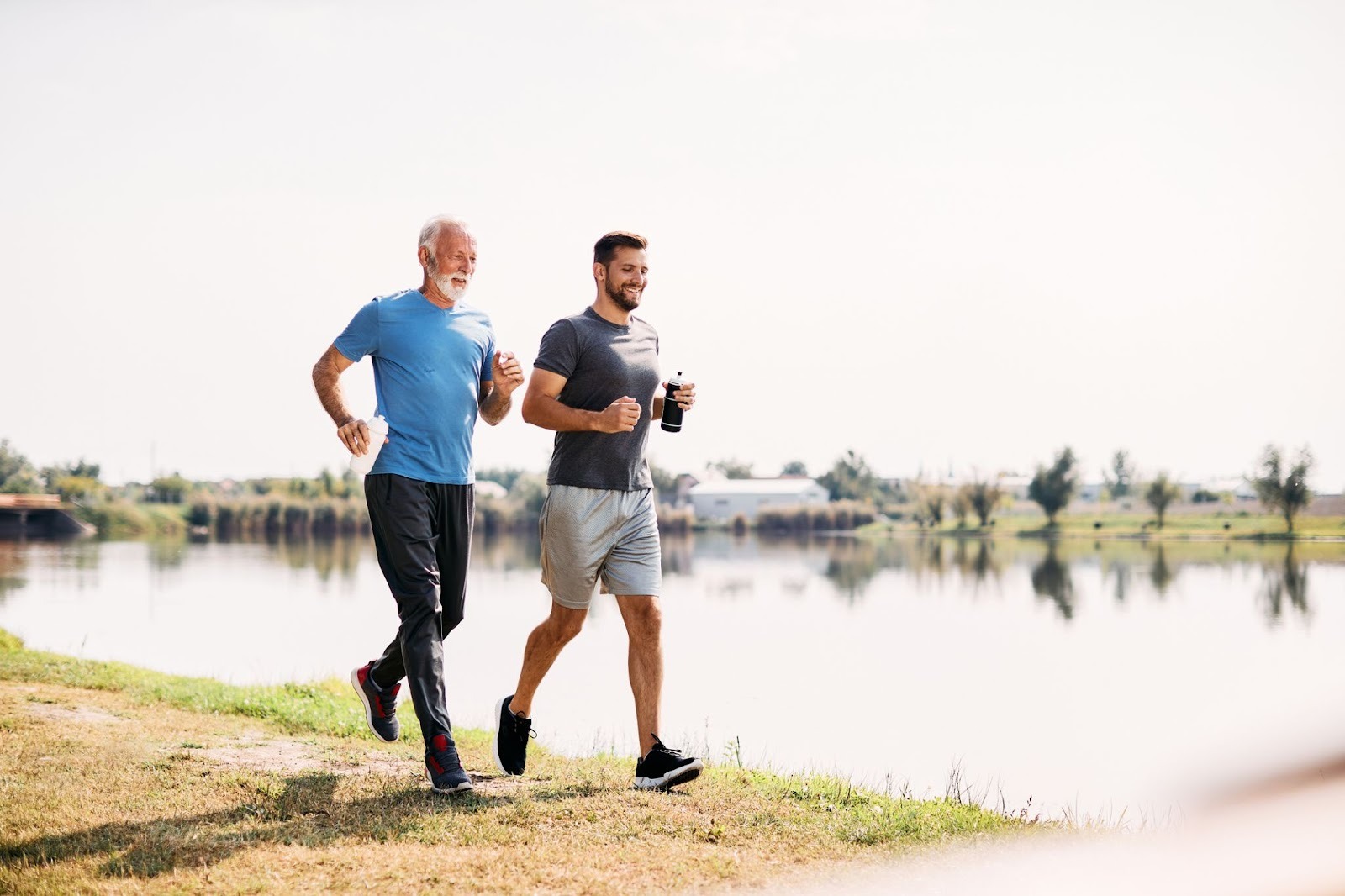World Pediatric Bone and Joint Day is a reminder that bone health is a lifelong journey, not something we can set and forget after childhood. While the focus of the day is often on preventing fractures and joint injuries in children, the lessons we learn from pediatric bone health apply well into adulthood.

Bones, muscles, and joints form the structural foundation of our bodies. This muscle and skeletal system is constantly changing, and what we do early in life, along with the habits we maintain, can determine how resilient we remain as we age.
One hormone in particular, testosterone, plays a crucial role in building and maintaining bone density.
From Playground to Prime Years: Why Bone Health Starts Early but Never Stops
During childhood and adolescence, bone tissue is in a state of rapid growth. Peak bone mass is typically reached in our late teens to early twenties. After that, bones naturally begin to lose density over time.

This means the bone bank we build in our youth becomes the foundation we draw from for the rest of our lives. Just like saving for retirement, the earlier you start, the better.
But that doesn’t mean it’s too late if you didn’t “max out” your bone health when you were younger. Your habits in adulthood can still strengthen your muscles and skeleton and slow bone loss.
While estrogen is often discussed in the context of bone health, especially for women, testosterone is equally important for men, and it supports women’s bone health as well. In men, testosterone helps:
Testosterone’s Role in Bone Strength
- Stimulate bone-building cells (osteoblasts)
- Regulate bone remodeling
- Support muscle mass, which indirectly protects bones by improving stability and balance
Low testosterone has been linked to reduced bone mineral density and a higher risk of fractures. In fact, men with low levels are more likely to develop osteoporosis, a fragile bone condition.
According to the National Institute of Arthritis and Musculoskeletal and Skin Diseases (NIH), more women get osteoporosis than men, and many men think they are not at risk for the disease. However, osteoporosis can affect both men and women of all races and ages.
Understanding Osteoporosis: Not Just a “Women’s Disease”
Osteoporosis is a condition where bones become weak, brittle, and more likely to break. It’s often called a “silent” disease because you may not notice symptoms until a fracture occurs.
For men, osteoporosis can occur due to:
- Low testosterone
- Poor nutrition (low calcium or vitamin D)
- Sedentary lifestyle
- Certain medications or medical conditions
Preventing osteoporosis means understanding your risk factors early and taking action before bone loss becomes significant.
Bone Health Across the Decades

In your 20s–30s: Maintain regular weight-bearing exercise (like walking, jogging, or resistance training) and eat a nutrient-rich diet to keep bone mass high. This is also a great time to get baseline hormone testing, especially if you have a family history of osteoporosis.
In your 40s–50s: Testosterone levels start to decline by about 1% per year in men over the age of 40. If you’re experiencing fatigue, decreased muscle strength, or changes in mood, it’s worth checking whether hormone changes are affecting your bone density.
In your 60s and beyond: The risk of fractures rises as bone density drops. Focusing on balance, flexibility, and strength can help prevent falls. Regular bone density scans and hormone testing become even more important.
Osteoporosis Self-care: Steps You Can Take Today
Whether you’re 25 or 75, you can take action to protect your bones and joints. The NIH recommends a combination of osteoporosis self-care strategies, including:
- Get enough calcium and vitamin D: Calcium strengthens bones, while vitamin D helps your body absorb it.
- Stay physically active: Weight-bearing exercises like hiking, dancing, or strength training stimulate bone growth.
- Eat a balanced diet: Include protein, healthy fats, and plenty of fruits and vegetables to support bone and hormone health.
- Avoid smoking and limit alcohol: Both can accelerate bone loss.
- Get regular checkups: Monitor bone density and hormone levels to spot changes early.
How Hormones Fit into the Bone Health Equation
Because testosterone supports muscle and bone strength, low levels can be a hidden driver of bone loss. The NIH notes that hormonal changes, whether due to aging, medical conditions, or certain treatments, can weaken bones over time.
That’s why it’s important to understand not just your bone density score, but also your hormonal profile. If testosterone is low, addressing it through lifestyle changes or medical treatment could help reduce your risk of fractures and maintain strong bones.
Preventing Osteoporosis with a Hormone-Aware Approach
To have healthy bones, you need to do more than just consume enough calcium. You need to create an environment where bones can thrive. That means:
- Supporting muscle mass through strength training
- Maintaining healthy hormone levels
- Getting adequate nutrition and rest
- Minimizing fall risk with balance and flexibility work
By combining traditional osteoporosis self-care strategies with hormone monitoring, you can build a stronger foundation for lifelong mobility.
Support Healthy Bones Today
World Pediatric Bone and Joint Day reminds us that strong bones start early, but they require ongoing care. Testosterone is a critical piece of the bone health puzzle, and monitoring it throughout adulthood can help prevent fragile bone conditions and keep you active for years to come.
Whether you’re in your 30s and thinking ahead, or in your 60s and focused on maintaining independence, it’s never too late to invest in your bones, muscles, and skeleton.
Want more information on men’s health and testosterone? Sign up for our newsletter to get regular insights sent straight to your inbox.
.svg)


.svg)






